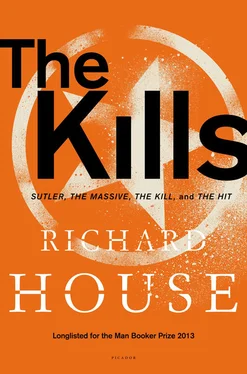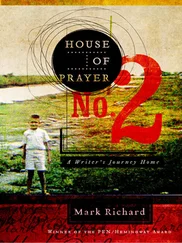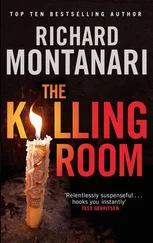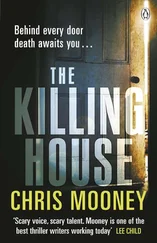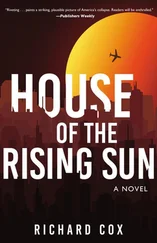Tomas says he isn’t worried. He has no intention of being associated with the hospital in any way. Although he needs to know more details, even now, he doesn’t want any kind of connection that maps him here, now.
* * *
The hotel, a bare structure, is nothing more than a series of cast concrete platforms, with heavy pillars, an iron framework and almost no walls — the floors stand open, and look something like a high-rise car park. The second storey provides the most sheltered vantage point, but the best view is from the rooftop under the cupola. It’s not unpleasant to lie on the concrete and feel the draught running over his back.
From the cupola level he can see into the living room, the kitchen beyond — it’s all one open space, more or less, divided by a small banquette. To the right of the living room lies Rike’s room, after that the bathroom with its small frosted window. Her sister’s bedroom is on the far side, which he can’t see. From the cupola, if he stands up — if it’s night — he can see into the garden, but not much of it. If Rike and her sister sit outside, then he has a great view. But the compound wall, the fig tree beside the bathroom, and a larger lemon tree block the remaining view.
He watches them in the evening. Sits with binoculars trained on the apartment. Rike cooks and Isa watches. The way they move when they speak shows them to be wary. Isa is more open. Rike, in everything she does, appears tight and controlled.
11.2
The days are long and unpleasant. It takes longer than he likes to prepare for the lessons. He regrets his choice of source material, the Finn Cullman book isn’t popular, but from what he’s found on the internet, a film based on the story had a limited release in Europe to art-house cinemas. Committed, he works out a timeline, collects the information into manageable blocks. He thinks of this as a kind of architecture. Each project is a purpose-built structure for one-time use. It’s a pity that no one will ever know. Although this unknown-ness is part of his craft.
Very little of what he uncovers is useful — there’s no way of knowing this when he starts. He works standing up, papers spread across the counter and stove top.
When he comes across useable material he tears the pages out of the book, writes notes, then sets the notes and pages in order. It doesn’t need to take as long as it does.
This is the only time Tomas wants to smoke. He stands in the kitchen, stooped over papers. A coffee in his left hand, his right hand unoccupied, shifting paper for the sake of it. Even after four years he still misses smoking. To make sure he tells a story the same way he’s told it before, he practises speaking out loud. Gives the same detail. Doesn’t deviate. Never improvises.
There’s a nice duplication in today’s story, which he could use straight, but has an idea that it could be fashioned more appropriately. It’s a simple anecdote: while researching his book on the murders in Naples, the author hired an assistant. The assistant, a university student, sets up meetings ahead of the visit, and is generally helpful. Once the author arrives things don’t go so cosily. There isn’t any chemistry and the men don’t particularly like each other. One night the author receives a call telling him that the assistant has been kidnapped. For some reason the author is suspicious, the calls aren’t necessarily credible. When the author returns to his hotel he discovers the whole thing was set up as a run-around to get him out of the room so he can be robbed. Everything is gone. He doesn’t see or hear of the assistant again. Rather than return home, the writer, robbed and dejected, starts the project over. Right from scratch.
The story has potential use, but the details aren’t distinct enough. Sometimes that’s just how it goes.
Everything now depends on plausibility. Circumstances have meant some stretching, which he doesn’t like. As Rike is new to Cyprus it’s unlikely that she can check in too much detail, and right now there’s simply no reason for her to doubt him. He’s lucky, if she knew more people it wouldn’t work. If she asked the neighbours she’d learn enough to invalidate much of what he’s told her. At some point, he knows, Rike is going to do some homework. She’ll get online. She’ll check out the neighbours. She’ll pick out one detail and discover the source. Having used the story about the murder already, it’s starting to sound absurd. When it drops, when the idea collapses, it will thunder down. He’s hopeful that this won’t happen immediately.
He doesn’t have to do it this way. He knows. He could get to the same place quicker with cruder means, or by simply being patient. This is, after all, what he does — almost nothing. Stick to the room, assess what is happening, move incrementally. Baby steps.
Tomas calls Geezler to let him know that he is in place. He needs a decision.
This isn’t going the way he wants. Hasn’t from the start. There’s a low-lying discomfort at how everything has steadily become unworkable.
He doesn’t tell Geezler about the stories, about Rike, or about the basement. Geezler doesn’t need to be concerned. What he needs from Geezler is a decision. Which one does he go for first?
He waits for the call: 10am, 2pm, 6pm, the usual times, but there’s no word.
* * *
He works on another approach. A backup. The basement is easy to prepare. He buys expanding foam and fills the ducts and the inside of the air vent. The vinegar stink of the chemical as it expands gives him a headache and he’s obliged to return to the stairs, to open the door and allow a draught.
Down in the basement again, he has to unpack the crates to reach the furthest vent. The only air that could come in to the room now would be through the door, and that, when he closes it from the outside, appears tight.
He doesn’t know how long it would take to exhaust the room of oxygen, and doubts that this would be possible. But it would become hot and intensely uncomfortable, enough to discourage action, enough to make the subject weary, weak. The room is deep enough that any noise would be contained.
Berens re-attaches a pulley system to the door, a counterweight which automatically slams it closed. He oils the hinges and uses foam to fill the hole left by the inside handle. While working on these final touches, he secures two pieces of wood as a wedge to ensure that the door will not close and he will not become trapped.
11.3
Rike insists on taking the lesson outside. He loses confidence while talking about the assault, a story he wishes he hadn’t used. She complains about her brother, tells a pitiful story about her sister, and repeats what he already knows about the man in Damascus. Bastian returned two days ago, and the patient was airlifted yesterday. Rike isn’t clear about which hospital they’ve brought him to: Limassol or Akrotiri.
While he’s patient, Tomas is also ready to exploit chance and possibility. Discussions with Rike which might feed into the structure. Having something work to plan is preferable, but the tedium of it means he often entertains other notions. A well-considered idea is like an object suspended, which can be re-approached, improved on each consideration. This is the best way he has of explaining the satisfactions of his work. It’s all about craft.
If he’s honest she isn’t exactly forthcoming. She knows precious little about Sutler, and Bastian, now he’s back from Syria, sounds even more reticent on the subject. He’s getting a limited return for all of his work.
Читать дальше
